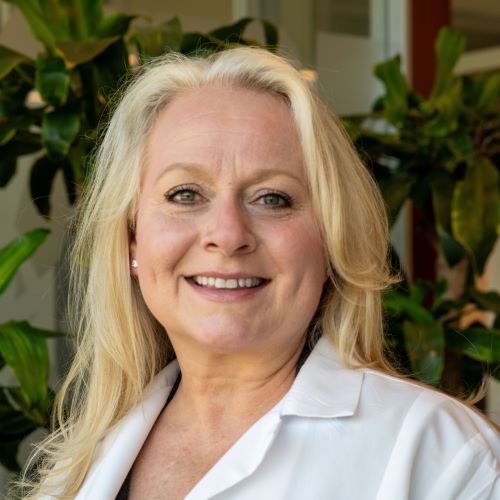


 The Department of Pathology at the University of Michigan recently launched a new program designed to enhance its ability to better serve the department, health system, external clients, and patients. This program is called hc1. According to project leads Chelsea Wright and Rafael Barran, hc1 integrates multiple disparate data sources within the pathology department into a single source system capable of supporting data-driven decision-making in pre-analytical, laboratory, and post-analytical operations. It provides out-of-box data filters, dashboards, and reports that fit the specific and direct needs of Michigan Medicine Laboratories (MLabs), the laboratory operating units, and the desired outcomes for Michigan Medicine as an institution.
The Department of Pathology at the University of Michigan recently launched a new program designed to enhance its ability to better serve the department, health system, external clients, and patients. This program is called hc1. According to project leads Chelsea Wright and Rafael Barran, hc1 integrates multiple disparate data sources within the pathology department into a single source system capable of supporting data-driven decision-making in pre-analytical, laboratory, and post-analytical operations. It provides out-of-box data filters, dashboards, and reports that fit the specific and direct needs of Michigan Medicine Laboratories (MLabs), the laboratory operating units, and the desired outcomes for Michigan Medicine as an institution.
 “The Department of Pathology is under enormous pressure to work efficiently, deliver superior service to patients and providers, track performance, cut expenses, deliver on new opportunities to grow, and increase revenue, all with the intended purpose of supporting the mission and vision of Michigan Medicine,” explained Karla Bialk, Business Development Manager for MLabs. However, the department lacked the technology and infrastructure to automate workflows, collaborate effectively, access critical customer information, and measure laboratory performance. With data and processes scattered across various disconnected systems and spreadsheets, valuable resources and opportunities were wasted.
“The Department of Pathology is under enormous pressure to work efficiently, deliver superior service to patients and providers, track performance, cut expenses, deliver on new opportunities to grow, and increase revenue, all with the intended purpose of supporting the mission and vision of Michigan Medicine,” explained Karla Bialk, Business Development Manager for MLabs. However, the department lacked the technology and infrastructure to automate workflows, collaborate effectively, access critical customer information, and measure laboratory performance. With data and processes scattered across various disconnected systems and spreadsheets, valuable resources and opportunities were wasted.
Building a customized program to address these issues would be time and labor-intensive. MLabs explored the software and service landscape for any more readily available applications but could identify only a few vendors with proven track records of performing the needed laboratory data analytics, but one did stand out.
 “Hc1 improves quality and patient safety, is vital to the stabilization of our infrastructure, will support growth of external clients and enhance services to internal Michigan Medicine clients, improve staff engagement, increase revenue capture, and move regional integration forward,” added Dr. Julia Dahl, Director of MLabs.
“Hc1 improves quality and patient safety, is vital to the stabilization of our infrastructure, will support growth of external clients and enhance services to internal Michigan Medicine clients, improve staff engagement, increase revenue capture, and move regional integration forward,” added Dr. Julia Dahl, Director of MLabs.
 Now that hc1 has been implemented successfully in MLabs, Phase 2 of the project is underway. The kick-off for the Precision Diagnostics (PDx) platform, led by Dr. Lee Schroeder, Director of Point-of-Care Testing, was held on August 13, 2024. This platform provides laboratory utilization analytics for interventions to improve patient access. “Non-ideal test ordering may result in the discovery of mildly abnormal test results that have a low likelihood of clinical significance. Nonetheless, these abnormal test results require further clinical evaluation. It is estimated that 33% of testing ordered - even in academic medical centers - results in this scenario. Additional follow-up, clinical visits, radiologic examinations, and further laboratory evaluation utilize healthcare resources that are then not available for other patients,” explained Bialak.
Now that hc1 has been implemented successfully in MLabs, Phase 2 of the project is underway. The kick-off for the Precision Diagnostics (PDx) platform, led by Dr. Lee Schroeder, Director of Point-of-Care Testing, was held on August 13, 2024. This platform provides laboratory utilization analytics for interventions to improve patient access. “Non-ideal test ordering may result in the discovery of mildly abnormal test results that have a low likelihood of clinical significance. Nonetheless, these abnormal test results require further clinical evaluation. It is estimated that 33% of testing ordered - even in academic medical centers - results in this scenario. Additional follow-up, clinical visits, radiologic examinations, and further laboratory evaluation utilize healthcare resources that are then not available for other patients,” explained Bialak.
The PDx platform is a solution built for health systems to evaluate test orders in real time and identify if they are within or outside nationally established clinical guidelines and those specific to the health system. The PDx platform can associate a cost with testing itself and downstream expenses related to the testing. The PDx platform can drill down to the provider level to understand ordering behaviors for targeted trainee education and to identify any intervention to be undertaken by laboratory and facility leadership. This robust set of solutions for the laboratory and health system is particularly advantageous in an academic setting.
 The Department of Pathology is traversing a time of immense change and growth with the new Tower, SE Michigan expansion, and regional affiliations. The laboratory is critical for the success of Michigan Medicine in each of these new ventures. "To effectively support Michigan Medicine’s goals, with hc1 the Department of Pathology can now provide real time analytics, saving countless hours for managers and supervisors – which can then be invested in navigating the change and growth," reflected analyst John Hamilton.
The Department of Pathology is traversing a time of immense change and growth with the new Tower, SE Michigan expansion, and regional affiliations. The laboratory is critical for the success of Michigan Medicine in each of these new ventures. "To effectively support Michigan Medicine’s goals, with hc1 the Department of Pathology can now provide real time analytics, saving countless hours for managers and supervisors – which can then be invested in navigating the change and growth," reflected analyst John Hamilton.
“Having a department-wide initiative like hc1 provides opportunities for people in different divisions to come together across shared work, understand one another’s work more deeply, and develop high-functioning teams together,” added Dahl. “Using this tool will support departmental decision-making regarding how to best serve our patients with our test menus. Complex calculations that are out of reach in our manual processes will become more accessible and have the potential to show the high impact that ideal laboratory test ordering and their timing can have on the downstream access and costs of care for the patient and the health system. Publishing these findings has additional benefits as well.”
A special thank you to all of those who attended meetings, the Subject Matter Experts that worked through validations, everyone who gave integral feedback and who helped play a part in the success of the rollout of hc1.
 ON THE COVER
ON THE COVER
Breast team reviewing a patient's slide. (From left to right) Ghassan Allo, Fellow; Laura Walters, Clinical Lecturer; Celina Kleer, Professor. See Article 2014Department Chair |

newsletter
INSIDE PATHOLOGYAbout Our NewsletterInside Pathology is an newsletter published by the Chairman's Office to bring news and updates from inside the department's research and to become familiar with those leading it. It is our hope that those who read it will enjoy hearing about those new and familiar, and perhaps help in furthering our research. CONTENTS
|
 ON THE COVER
ON THE COVER
Autopsy Technician draws blood while working in the Wayne County morgue. See Article 2016Department Chair |

newsletter
INSIDE PATHOLOGYAbout Our NewsletterInside Pathology is an newsletter published by the Chairman's Office to bring news and updates from inside the department's research and to become familiar with those leading it. It is our hope that those who read it will enjoy hearing about those new and familiar, and perhaps help in furthering our research. CONTENTS
|
 ON THE COVER
ON THE COVER
Dr. Sriram Venneti, MD, PhD and Postdoctoral Fellow, Chan Chung, PhD investigate pediatric brain cancer. See Article 2017Department Chair |

newsletter
INSIDE PATHOLOGYAbout Our NewsletterInside Pathology is an newsletter published by the Chairman's Office to bring news and updates from inside the department's research and to become familiar with those leading it. It is our hope that those who read it will enjoy hearing about those new and familiar, and perhaps help in furthering our research. CONTENTS
|
 ON THE COVER
ON THE COVER
Director of the Neuropathology Fellowship, Dr. Sandra Camelo-Piragua serves on the Patient and Family Advisory Council. 2018Department Chair |

newsletter
INSIDE PATHOLOGYAbout Our NewsletterInside Pathology is an newsletter published by the Chairman's Office to bring news and updates from inside the department's research and to become familiar with those leading it. It is our hope that those who read it will enjoy hearing about those new and familiar, and perhaps help in furthering our research. CONTENTS
|
 ON THE COVER
ON THE COVER
Residents Ashley Bradt (left) and William Perry work at a multi-headed scope in our new facility. 2019Department Chair |

newsletter
INSIDE PATHOLOGYAbout Our NewsletterInside Pathology is an newsletter published by the Chairman's Office to bring news and updates from inside the department's research and to become familiar with those leading it. It is our hope that those who read it will enjoy hearing about those new and familiar, and perhaps help in furthering our research. CONTENTS
|
 ON THE COVER
ON THE COVER
Dr. Kristine Konopka (right) instructing residents while using a multi-headed microscope. 2020Department Chair |

newsletter
INSIDE PATHOLOGYAbout Our NewsletterInside Pathology is an newsletter published by the Chairman's Office to bring news and updates from inside the department's research and to become familiar with those leading it. It is our hope that those who read it will enjoy hearing about those new and familiar, and perhaps help in furthering our research. CONTENTS
|
 ON THE COVER
ON THE COVER
Patient specimens poised for COVID-19 PCR testing. 2021Department Chair |

newsletter
INSIDE PATHOLOGYAbout Our NewsletterInside Pathology is an newsletter published by the Chairman's Office to bring news and updates from inside the department's research and to become familiar with those leading it. It is our hope that those who read it will enjoy hearing about those new and familiar, and perhaps help in furthering our research. CONTENTS
|
 ON THE COVER
ON THE COVER
Dr. Pantanowitz demonstrates using machine learning in analyzing slides. 2022Department Chair |

newsletter
INSIDE PATHOLOGYAbout Our NewsletterInside Pathology is an newsletter published by the Chairman's Office to bring news and updates from inside the department's research and to become familiar with those leading it. It is our hope that those who read it will enjoy hearing about those new and familiar, and perhaps help in furthering our research. CONTENTS
|
 ON THE COVER
ON THE COVER
(Left to Right) Drs. Angela Wu, Laura Lamps, and Maria Westerhoff. 2023Department Chair |

newsletter
INSIDE PATHOLOGYAbout Our NewsletterInside Pathology is an newsletter published by the Chairman's Office to bring news and updates from inside the department's research and to become familiar with those leading it. It is our hope that those who read it will enjoy hearing about those new and familiar, and perhaps help in furthering our research. CONTENTS
|
 ON THE COVER
ON THE COVER
Illustration representing the various machines and processing used within our labs. 2024Department Chair |

newsletter
INSIDE PATHOLOGYAbout Our NewsletterInside Pathology is an newsletter published by the Chairman's Office to bring news and updates from inside the department's research and to become familiar with those leading it. It is our hope that those who read it will enjoy hearing about those new and familiar, and perhaps help in furthering our research. CONTENTS
|
 ON THE COVER
ON THE COVER
Rendering of the D. Dan and Betty Khn Health Care Pavilion. Credit: HOK 2025Department Chair |

newsletter
INSIDE PATHOLOGYAbout Our NewsletterInside Pathology is an newsletter published by the Chairman's Office to bring news and updates from inside the department's research and to become familiar with those leading it. It is our hope that those who read it will enjoy hearing about those new and familiar, and perhaps help in furthering our research. CONTENTS
|

MLabs, established in 1985, functions as a portal to provide pathologists, hospitals. and other reference laboratories access to the faculty, staff and laboratories of the University of Michigan Health System’s Department of Pathology. MLabs is a recognized leader for advanced molecular diagnostic testing, helpful consultants and exceptional customer service.